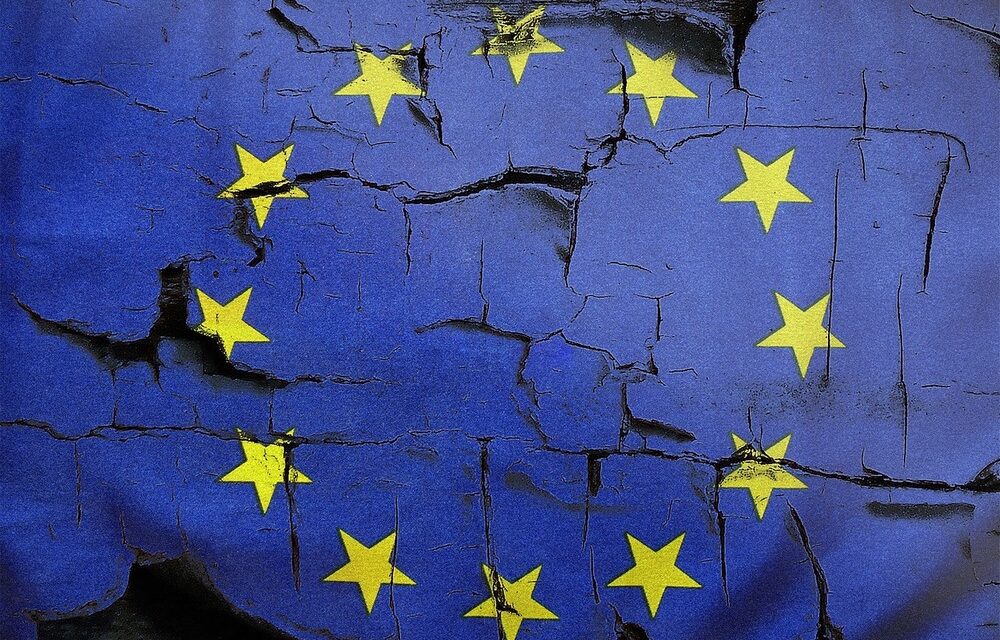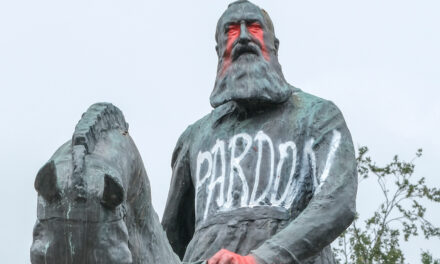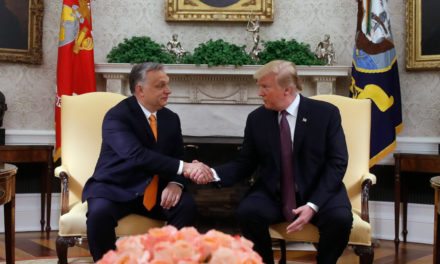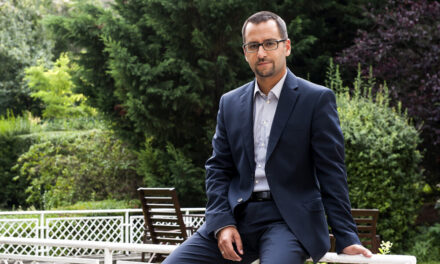The European Parliament elections did not primarily bring significant changes in the composition of the European body, but at the level of the member states - this is how researchers summarized the results of the June voting on Thursday in the Where to next, Europe? – At the round table discussion entitled "Evaluation of the EP elections", at the Hungarian Institute of Foreign Affairs.
Péter Dobrowiecki, head of research at the Mathias Corvinus Collegium (MCC) Hungarian-German Institute for European Cooperation, said that the European People's Party (EPP) won more seats, but the Greens were pushed back. The number of independent representatives has increased, he called it a question whether they will find a faction for themselves and how it will shape the dynamics of the European Parliament.
Gergely Fejérdy, senior researcher at the Hungarian Institute of Foreign Affairs, deputy scientific director of the Habsburg Ottó Foundation, emphasized that the People's Party, the Progressive Alliance of Socialists and Democrats (S&D) and the liberals can still secure a majority in the European Parliament.
In his opinion, the really important question will be what further changes the "smaller or very significant, landslide-like changes" in the individual member states will result in on the European political scene. For example, Marine Le Pen, who heads the strongest radical right-wing party, has repeatedly stated that she has no intention of sitting in the same faction as the German far-right (AfD).
Drastic changes in Belgium and France
In Belgium, where parliamentary elections were also held, the previous government failed, and in France, early elections are being held after President Emmanuel Macron dissolved the National Assembly.
In the large European member states, the parties in power have significantly lost their power
Gergely Fejérdy pointed out.
Péter Dobrowiecki emphasized that there are fault lines between the European right-wing parties, but they represent a unified position on some issues. Examples include migration or the slowing down of certain passages of the Green Deal. The Green faction, for example, offered itself to the European People's Party as a stable partner in order to preserve "democratic values", as opposed to a possible shift to the right in the direction of Giorgia Meloni. The researcher sees that the French president is not expected to intervene in European politics as strongly as he has done so far. The fact that Ursula von der Leyen did not shy away from cooperation with the ECR (European Conservatives and Reformers) can also provide an interesting perspective.
As a result, the right-wing in the EP is distinctly fragmented, but will most likely be able to unite along specific issues (migration or the suspension of certain passages of the Green Deal). There is a good chance that the strengthening People's Party faction will push back the 2035 date for the European phase-out of vehicles with explosive engines. Péter Dobrowiecki emphasized that Manfred Weber defined the EPP as the party of industrialists, farmers and European business after the elections. All this shows that
economic goals will be more prominent in the People's Party, since they are less dependent on the Greens.
Gergely Fejérdy believes that agriculture will feature more strongly on the agenda of the European Parliament, also because of the issue of Ukrainian subsidies. The common agricultural policy has many pitfalls, which have become acutely apparent since the outbreak of the war. According to him, new aspects can be added to the implementation of the green transition, and "the compass setting" will be different in terms of illegal migration as well.
While the main agenda in 2019 was to realize the green transition in Europe, this now needs to be reconsidered. The right will be able to get behind such an issue much more widely, and because of this there will be changes in European politics. The People's Party will also have an interest in bringing right-wing ideas to the fore, because that is the only way it will be able to find supporters.
- emphasized the researcher.
No one really won with the Germans
Péter Dobrowiecki said about the situation in Germany that no party can be considered a winner there. The governing parties achieved a total of 31 percent, the CDU/CSU around 30 percent, i.e. "it did not exceed the 30 percent ceiling."
The Alternative for Germany (AfD) won 16 percent. These results are also worth examining in light of the fact that there will be federal elections in 15 months
- indicated the MCC researcher.
Since the creation of the traffic light coalition, the parties in it have been on a collision course. The biggest conflict is between the FDP and the Greens, which is interesting because the former are the finance minister, and the latter are the economy minister, who clash with each other very often. Even the CDU/CSU's 30 percent success can be bittersweet in light of the fact that during Angela Merkel's time it reached 40-45 percent in some periods.
"The fact that even during such an unpopular government, the CDU is not able to massively exceed 30 percent in an EP election, is not so good news for the party's president, Friedrich Merz, who was elected with the promise of returning the CDU has a more pronounced conservative edge. The party is in a serious dilemma now, as this support is not yet sufficient for a change of government."
Péter Dobrowiecki noted.
The AfD made a lot of mistakes, but its situation is not hopeless
The radical right-wing AfD has come under serious crossfire, which their politicians can also blame, since they have accumulated many skeletons in their closets. In addition, the party's EP campaign was disastrous: the first and second candidates at the top of the party list were involved in countless scandals, and one of the interns was framed as a Chinese spy in the press. As a result of the series of scandals, the party leadership banned its own list leader from public appearances. In an interview with an Italian newspaper, Maximilian Krah tried to relativize the collective guilt of the SS, which completely blew the fuse.
However, even though Maximilian Krah was the leader of the AfD list, he will not become an EP representative. The party can thus get closer to the Identity and Democracy coalition, from which they were previously excluded precisely because of his statements. Despite the huge scandals, the AfD won 16 percent, but its support in national politics is still above 20 percent.
Summarizing the situation of the parties, after the EP elections, almost everyone can now be considered a loser. The AfD, on the other hand, can count on the fact that fewer people voted for them than their real supporters because of their bad campaign. Among the governing parties, the support of the Greens has halved, the Socialists are at a historic low (13 percent), only the FDP can be happy that it has crossed the 5 percent threshold
Péter Dobrowiecki noted.
In the autumn, elections will be held in three East German states (Brandenburg, Thuringia and Saxony), and in these areas the AfD is the number one political force, with well over 30 percent support. However, pro-protest voters support not only the extreme right, but also the extreme left, the two of which together can support around 30 percent of voters at the federal level.
However, the firewall principle does not allow the radical right-wing party to come to power in any province for the time being, since all the other parties have sworn that they will do everything possible to do so. According to the MCC researcher, this certainly raises an interesting problem from the point of view of German democracy.
Macron has done something that no one has done since 1997
Analyzing the situation in France, Gergely Fejérdy pointed out that Emmanuel Macron dissolved the National Assembly - something that had not happened since 1997 - and thus the government failed, and new elections follow. The party of the radical right, the National Consolidation, reached almost 32 percent, and the government side "at the cost of great struggles, not even half of that" . Since the French president's announcement, his party's popularity has declined even further. The leading researcher of the Hungarian Institute of Foreign Affairs sees:
In France, both the left-wing bloc and the radical right are gaining strength, while the center bloc is shrinking. According to surveys, the National Compact will have a majority in the early elections.
Since the European Parliament elections, there have been demonstrations in French cities, a demonstration of up to 100,000 people is expected in Paris this weekend, and the election campaign may turn into mass movements. All of this is also remarkable from the point of view that the Olympics will be held in Paris in July - recalled Gergely Fejérdy, who said that political rationality would have rather dictated that the world's biggest sporting event should be waited for, and then the French voters would be called to the polls in September.
Marine Le Pen's party has won EP elections continuously since 2014. The current radical right-wing campaign was successfully led by only 28-year-old Jordan Bardella. This clearly reflects the generational change that is taking place before our eyes in French public life. A good example of this is Prime Minister Gabriel Attal, who is 35 years old. As expected, the National Consolidation ended with a result of 31 percent, while on the other hand, despite great efforts, the government side did not receive even half of the votes (14 percent).
Before the elections, Jordan Bardella asked Macron to dissolve the National Assembly if his party won a significant victory. Since the president is in a checkmate situation in terms of domestic politics, dissolving the National Assembly cannot cause drastic changes for him. Dissatisfaction with the government is so great that Macron's support in the center is dwindling day by day. The parties will have only three weeks to campaign until the day of the snap election. Forecasts show that
the National Compact will certainly have a majority, which means that the head of state will be able to appoint a radical right-wing prime minister, for which Jordan Bardella is the most likely candidate.
In the majority of the French, the II. Since World War II, there has been a horrible image of the radical right, as it collaborated with Nazi Germany during this period. The voters are much more tolerant of the communists, as they have never experienced the downsides of this system. However, these voters cannot think of anything worse than Nazism. The so-called "democratic block" therefore advocates that all other parties must unite against the National Compact. This still worked in 2002 when Jacques Chirac was elected, but in 2022 it is much less so.
By handing over power, Emmanuel Macron's goal may also be to amortize the National Collapse when he gets to government, since until now they have only politicized in the opposition, which is a much easier genre.
We should not expect a European miracle from Trump's election
The two researchers agreed that no change is expected in the post of president of the European Commission: Ursula von der Leyen is certainly looking forward to her second term. Péter Dobrowiecki believes that the question would be open if such results had not been achieved in Germany and France. He indicated that no other serious challengers emerged during the campaign either. Gergely Fejérdy noted,
a person is appointed to the head of the European Commission who did not even measure up in an election, which can also be evaluated as a kind of "strange democratic deficit".
At the end of the round table discussion, in response to questions, the researchers considered that "Central Europe will not have a larger playing field" in European politics, despite the fact that Germany and France are currently ailing.
It was also asked how the possible election of Donald Trump would affect the situation in Europe. The researchers agreed that whoever becomes president of the United States will not bring about significant changes in Europe; the continent remains in a difficult situation, primarily due to its economic situation. Moreover, Europe is increasingly losing its importance in world politics, Gergely Fejérdy added.
Europe is important to America from the point of view of not being a competitor, and this has practically been resolved. However, if they need our land in the fight against the Chinese or the Russians, then let's just line up. It is also in the interest of Biden or Trump that no European government, regardless of its political affiliation, should possibly oppose the American idea.
The primary task of American presidents is to make the United States bigger, and this does not include a policy that embraces and helps Europe, since our continent is just a tool in Washington's policy. The possible election of Donald Trump will not bring much benefit to the old continent, it would be unreasonable to expect the rise of Europe from this
- concluded the MKI's leading researcher.
Featured Image: Pixabay













